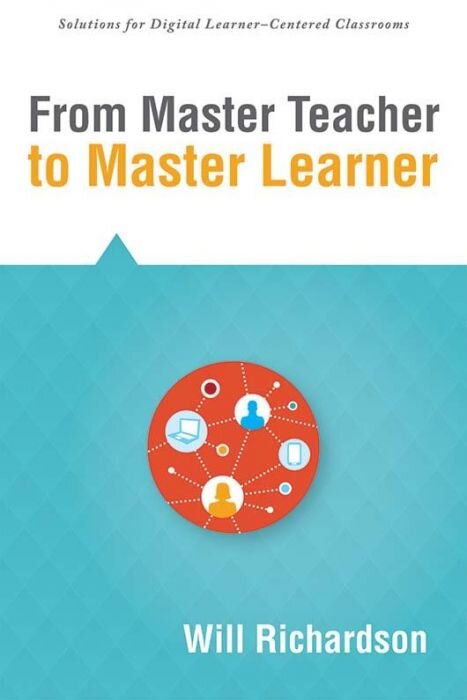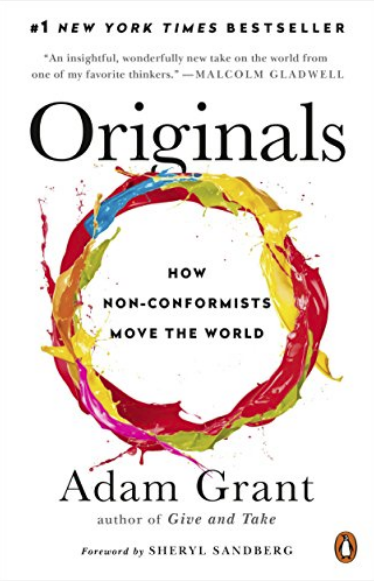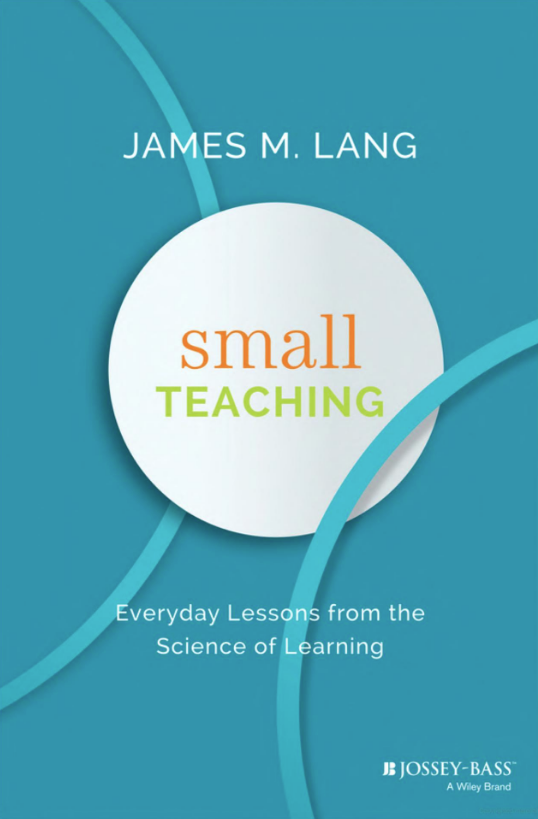Free Content. Subscription Services. Customized Workshops.
To view a distillation click on the book cover or Read More link below the excerpt. Not sure how to use the distillations to improve your practice, learn more about them on our Distillations Explained page.
To find another book, return to the Book Search page.
The Innovator’s Mindset
George Couros’, The Innovator’s Mindset convincingly makes the case that schools should exist to empower students to be innovative leaders, creators, problem finders, and problem solvers. He creatively introduces a blueprint for how schools can do this by introducing two different approaches focused on making meaningful connections by building trust and taking risks.
Linchpin
Seth Godin’s Linchpin proclaims that the industrial model of schooling and living as cogs in a machine is outdated, and in turn, explains how individuals can transform themselves into indispensable linchpins that create art, inspire human connections, and solve interesting problems. Godin chips away at traditional educational models that rely upon fear, compliance, and rote memorization; however, he also provides innovative alternatives centered around the belief in students, growth, leadership, and taking risks.
From Master Teacher to Master Learner
Will Richardson makes it clear from the get-go in From Master Teacher to Master Learner that the model teacher needs to now be a learner first and foremost. He reinforces the idea that our students no longer need teachers who have encyclopedic knowledge, but rather those who can model learning and guide students through what learning should look like in the digital age.
Give and Take
Are you a Giver, Taker, or Matcher? In Give and Take, Adam Grant explains how our style of interacting with others shapes us and our organizations. One of his main claims is that Takers achieve short-term, individual success, but Givers are inherently better leaders.
On Your Mark
Are you ready to overhaul everything you thought you knew about assessment? In On Your Mark, Thomas Guskey asks us to unpack the philosophy of why we give grades at all.
Why Don’t Students Like School?
Cognitive Scientist Daniel Willingham picks apart the traditional concepts teachers are continually taught and explains them in simplistic detail. He organizes the book based upon a few concrete ideas that could forever alter the way you teach.
Timeless Learning
Socol, Moran, and Ratliff’s book Timeless Learning; How Imagination, Observation and Zero-Based Thinking Change Schools takes a look at outdated American public schools and how they are currently failing students. School leaders and educators wishing to create change will appreciate this book for inspiration and for ideas on how and where to start.
Thanks for the Feedback
In Thanks for the Feedback Douglas Stone and Sheila Heen address an incredibly important, yet rarely written about, concept: how we receive feedback from those around us. The three types of feedback: appreciation, coaching, and evaluation are teased out and concepts such as “wrong spotting” help us to understand how our natural tendency to protect our ego/identity gets in the way of evaluative feedback.
How to Be an Antiracist
Ibram X. Kendi blends research, personal anecdotes, and history together poetically to paint the picture of what it means to live out the title of this book. How to be an Antiracist will give you the definitions, background, and theories to guide you towards a new way of viewing your role in the world.
The Medici Effect
Frans Johansson tells stories that illustrate connections across seemingly dissimilar disciplines in order to emphasize his main idea: Intersection is the key to innovation. Most of the book is spent guiding the reader in terms of how to create the Intersection as frequently and efficiently as possible.
The Element
Are your students discovering their talents and pursuing their passions? In The Element, Sir Ken Robinson explains why and how all humans should tap into their aptitudes and interests in order to find more fulfillment in life and prepare for the complex problems facing our ever-changing world.
Made to Stick
Taken from the perspective of what makes an idea stick, this book analyzes and presents effective delivery methods to increase the retention of concepts or ideas. The Heath brothers use real-world examples and a somewhat informal tone to assist their readers in applying the six principles of “stickiness” (Simple, Unexpected, Concrete, Credible, Emotional, Stories: SUCCESS) necessary for effective concept retention.
The Math Myth
Andrew Hacker presents The Math Myth as America’s antidote to the global hysteria surrounding rigor and achievement at all levels of math study. He argues, quite convincingly, that the intensity in content level and pressure to understand is disconnected from what is needed for success in the real world.
Mindset
In what is perhaps the most buzzworthy and conversation-inducing book within education this century, Mindset vividly demonstrates the difference between a “growth” and a “fixed” mindset. The former is a blueprint for a life of learning and achievement, and the latter, a life of low-effort, defensive responses creating a feeling of constantly not measuring up.
Small Teaching
Inspiration, understanding, knowledge, small teaching, Knowledge Attainment, Retrieval, Predicting, Interleaving, connecting, practicing, self-explaining, inspiration, motivating, growing, expanding, Book, distillation, education, thought leaders, Learning, teaching, pedagogy, teaching and learning
The Talent Code
In The Talent Code, Daniel Coyle proposes all hotbeds of talent (e.g., Russian female tennis players from 2005-2007, Dominican players in the Major Leagues, the home that produced the three Brontë sister authors) have commonalities: Deep practice, Ignition, and Master Coaching. In some ways the sociological equivalent to Daniel Pink's Drive, The Talent Code offers solid examples of how myelin is the key to developing talent.


















